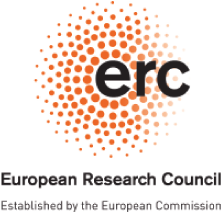Student views and experiences of asymptomatic COVID-19 testing at the University of Edinburgh
Alice Street, Mats Stage Baxter, Sarah Christison, Imogen Bevan, Linda Bauld, 2021
In November 2020, the University of Edinburgh launched a mass testing programme to identify pre
and asymptomatic cases of COVID-19 so as to minimise transmission when students travelled home
for the winter break. This was part of a Scotland and UK wide initiative to detect and contain hidden
infections in the highly mobile student population. The programme was also an opportunity to explore
the future feasibility of mass testing as a strategy to enable UK universities to safely increase the
volume of on-campus teaching and research.
This study included a short survey
immediately following student participation in the testing process in December 2020 followed by
in-depth interviews with a smaller cross-section of students in January 2021. The research explored
student perceptions and experiences of the university’s testing programme and the ways in which
their participation influenced their plans for travel and protective behaviours. Topics addressed
included students’ motivation to participate in asymptomatic testing; challenges that students
experienced in accessing or undertaking testing; trust in test results; and how test results influenced
adherence to public health guidelines on travel, social distancing, and isolation. The research aimed to
understand the value that students attribute to testing and the ways in which this value influences
testing practices, with a view to informing and improving government and university testing strategies
in the future.
This report begins by outlining the background context within which presymptomatic and
asymptomatic testing programmes for students and LFDs were established. It then describes how the
Semester 1 (pre-Christmas 2020) University of Edinburgh testing programme was established and
what it involved. The methods for the study are then explained, followed by the results, including
survey findings (closed and open-ended questions) and some early indications of the key themes
emerging from follow-up interviews. Finally, we include a brief discussion of the results as well as
conclusions and recommendations. We argue that students experience testing as a social process
and that approaching testing programmes from this perspective can help to highlight and address
barriers to take-up and improve communications regarding the uses and purposes of testing.
Full citation:
Read working paper
Scottish Chief Scientist Office Final Report - Testing and trust: Public perceptions, expectations, and experiences of COVID-19 testing in Scotland
Street, A., 2020
COVID-19 testing is a cornerstone of long-term pandemic control. Public trust in the value and accuracy of testing is essential to the success of the government’s testing strategy. This rapid qualitative study, involving 70 participants aged 19–85, investigated public understandings, expectations, and experiences of COVID-19 testing in Lothian, Scotland. In addition, the study investigated how people understand the purpose and value of COVID-19 tests and sought to identify the social factors that influence people’s willingness to undergo testing and follow government guidelines, as well as the ways in which people’s perceptions and experiences of testing affect trust in government and health services. The primary aim of the project was to provide rapid feedback to the government and institutions involved in the administration of COVID-19 testing to help improve the efficacy of testing programmes. The second aim of the project was to contribute to social understandings of testing and diagnosis within the fields of sociology andanthropology of medicine.
Full citation:
READ THE WORKING PAPER
Report on the DiaDev study at 34th Military Hospital
Dr Mohamed Boie Jalloh, 2020
The DiaDev research project was conceived to investigate the design and use of diagnostic devices (or, more specifcally, point-of-care rapid diagnostic test [RDT] kits) in order to understand how such test kits are contributing to the transformation of the health system in Sierra Leone. The DiaDev study at 34th Military Hospital mapped the behaviour of patients and healthcare workers in the context of RDT use and explored how patient experiences were afected when seeking healthcare, as well as the way RDTs infuenced the prescription patterns of clinical ofcers. Did RDTs infuence treatment decisions in any way, and what did patients feel about the diagnostic methods used?
Full citation:
READ THE WORKING PAPER
Zero-COVID-UK: What efforts to eliminate nine neglected tropical diseases can teach us about this disease target
E. Michelle Taylor, 2020
This commentary contributes to the debate on the feasibility and value of elimination of COVID-19 in the UK by reflecting on the experiences of nine neglected tropical diseases (NTDs) already marked out for elimination. First, it conveys a better sense of what
elimination is (and is not); and second, it points to the additional value a disease
elimination framework can provide for strategic planning.
Full citation:
Read the working paper
Laboratory strengthening in public health emergencies: perspectives from Sierra Leone
Vernooij, E., Kelly, A., Rogers, J., Gbetuwa, M., Street, A., 2020
Lessons learned from post-Ebola laboratory strengthening efforts
Full citation:
Read the full working paper here
Investigating the Design and Use of Diagnostic Devices: Sierra Leone Research Report
Vernooij, E., 2020
Understanding the life cycle of diagnostic devices in Sierra Leone: a health systems study
Full citation:
DiaDev Research Report Sierra Leone
Ann Kelly » Learning the Right Lessons for the Next Pandemic - How to Design Public Inquiries into the UK Government's Handling of Covid-19
Kelly, A, 2019
Full citation:
https://www.kcl.ac.uk/eis/assets/KDEISResearchReport-June2020-A4-proof3-SinglePage.pdf






